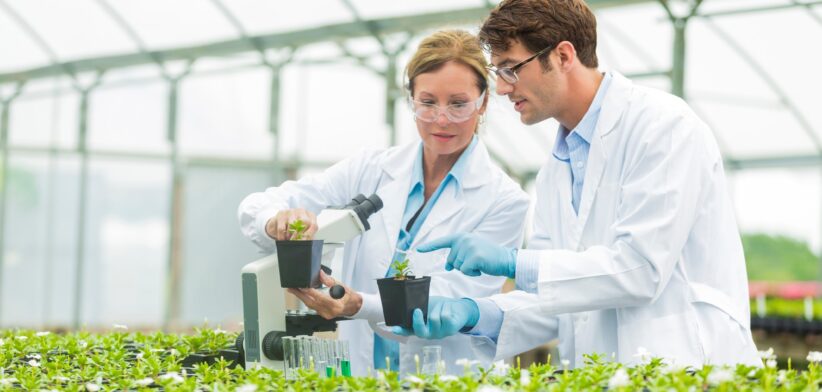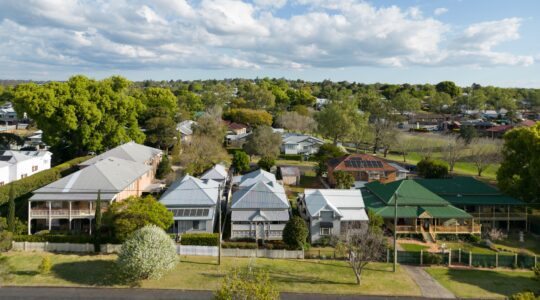A project aimed at developing new crops to future-proof Queensland’s agriculture industry is one of eight to receive State Government funding.
The Australian Plant Phenomics Facility will share in $15 million allocated this year from the Research Infrastructure Co-Investment Fund (RICF).
Through new phenotyping (imaging and sensing) of growing plants and crops, the facility will develop new plant and crop variety pipelines and management solutions to mitigate climate change effects on farm productivity.
It will also develop novel crops and accelerate the goal of carbon-neutral agriculture.
Queensland Chief Scientist Professor Kerrie Wilson said all the projects had an eye on the nation’s future and the funding acknowledged some of the state’s most forward-thinking and important work in the areas of health, renewable energies, science, and technology.
Professor Wilson said the three-year funding allocations would help the eight research facilities to maintain and grow leading-edge science and innovation capabilities.
“(The funding) optimises world-class research infrastructure to support a thriving innovation ecosystem in Queensland that drives ideas through to commercialisation, adoption and diffusion.”
She said the RICF was designed to support existing or establish new Queensland research capability of national significance.
“This funding further boosts Queensland’s key areas of research, ensuring our scientists have leading edge translational research infrastructure in which to do their work.
“Their cutting-edge research with industry opens the doors to future opportunities and help drive the development of new impactful and innovative products for the benefit of Queensland,” she said.
This year’s funded facilities and projects are:
Centre for Microscopy and Microanalysis:
Establish the Natural Resources Innovation & Characterisation Hub (NRICH) to address challenges, such as the increase in metal demand, higher sensitivity and mixed ore bodies for advanced batteries, renewable energy and quantum technologies, and recovery and recycling of mining waste and more demanding exploration and extraction opportunities for a circular economy.
Australian National Fabrication Facility – Queensland Node:
Upgrade and enhance equipment capabilities to advance Queensland’s priority investment areas, including research and commercialisation in next-generation renewable energy and infrastructure, advanced batteries, resource recovery and recycling, biomedical devices and technology platforms, and defence and quantum technologies.
National Imaging Facility – Queensland Node:
Bring together Queensland’s leading biomedical imaging partners to grow an expert imaging workforce in future-critical areas such as data pipelines, medical image artificial intelligence, and accessible MRI to translate research into health discoveries and commercialisation.
Therapeutic Innovation Australia Ltd:
Establish a Queensland Drug Discovery Alliance to supercharge translation of Queensland’s drug discovery pipeline, train Queensland’s workforce and position the state at the forefront of Asia-Pacific innovation in therapeutic drug discovery development, and translation.
Bioplatforms Australia – Queensland Node:
Empowering Queensland Biodiversity and Biomedicine Research with State-of-the-Art ‘Omics Tools and Platforms to underpin biodiversity research and conservation management, and translational biomedical research.
Terrestrial Ecosystem Research Network:
Deploy flux and ecohydrology sensors and machine-to-machine data access to meet industry’s need for faster access to near real-time research data and models on the State’s natural and managed (agricultural) ecosystems and the natural capital services they provide, to more effectively address long term pressures such as climate and land use change, introduced species and episodic events such as bush fires and storms.
Australian Plant Phenomics Facility – Queensland Node:
Provide new high-throughput phenotyping (imaging and sensing) of growing plants and crops with data processing to develop new plant and crop variety pipelines and management solutions to mitigate climate change effects on farm productivity, including addressing the preservation of nature capital, the development of novel crops and accelerate the goal of carbon-neutral agriculture.
The UQ National Drone Research Platform:
Expand the footprint of field deployment sites and repeat surveys within Queensland, to build the State’s resilience against habitat loss, climate change and geohazards. Extend the capability of the infrastructure to supply valuable geoscience data needed by Queensland’s industry to help locate and define resources for the energy transition.








